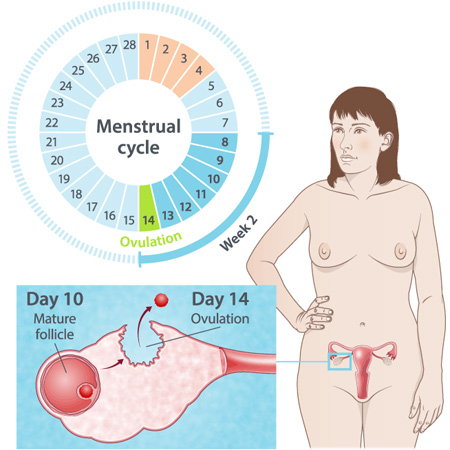You at 2 weeks pregnant
Your period has probably finished by now. One of your ovaries is getting ready to release an egg. The ovaries are also producing a lot of oestrogen. Oestrogen kick-starts some important processes in your body:
- Your fallopian tubes and cervix produce ‘fertile mucus’, which helps and protects any sperm along its way.
- A new lining – the endometrium – starts growing in your uterus. A fertilised egg will bury itself in the endometrium.
- At around the end of this week, the ovary is ready to release an egg – this is called ovulation.
 Ovulation and sex
Ovulation and sex
Ovulation usually happens around day 14 if you have a 28-day menstrual cycle. You’ll be more likely to get pregnant if you have sex 1-3 days before ovulation and on the day of ovulation.